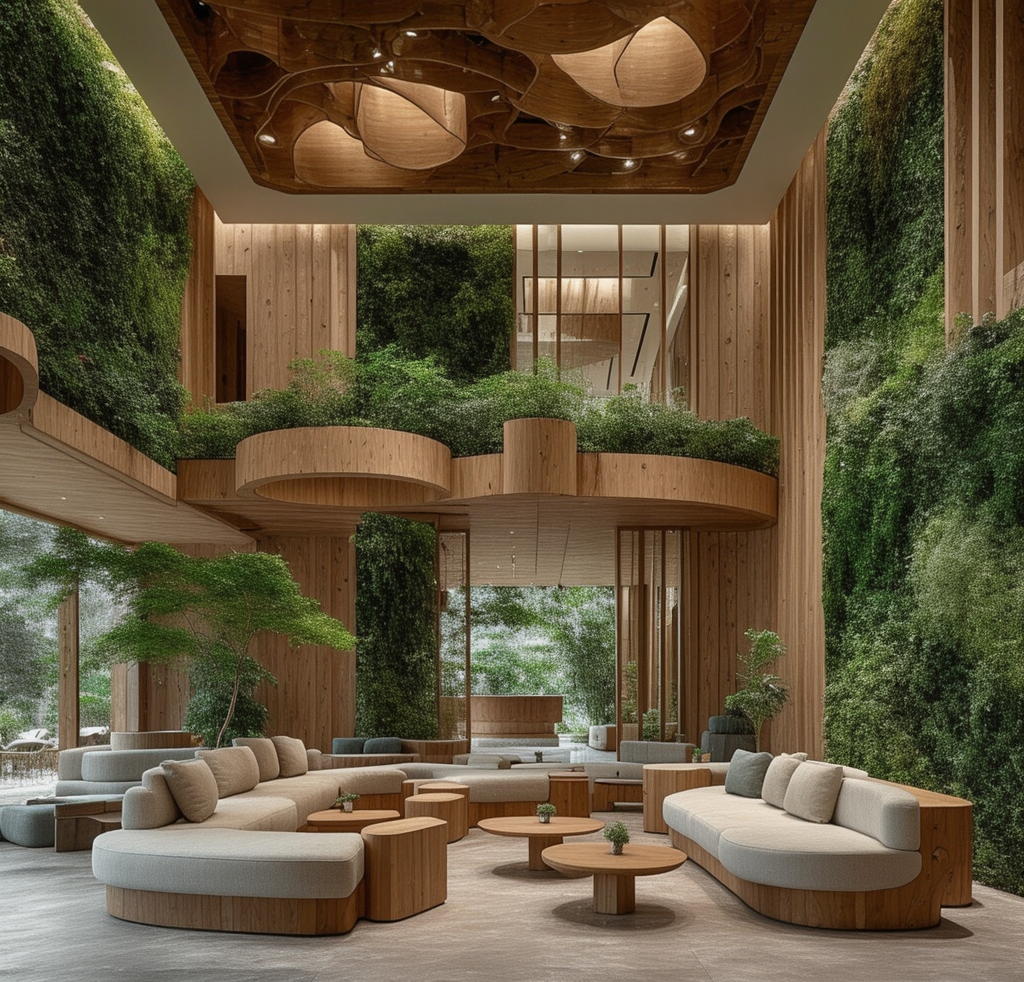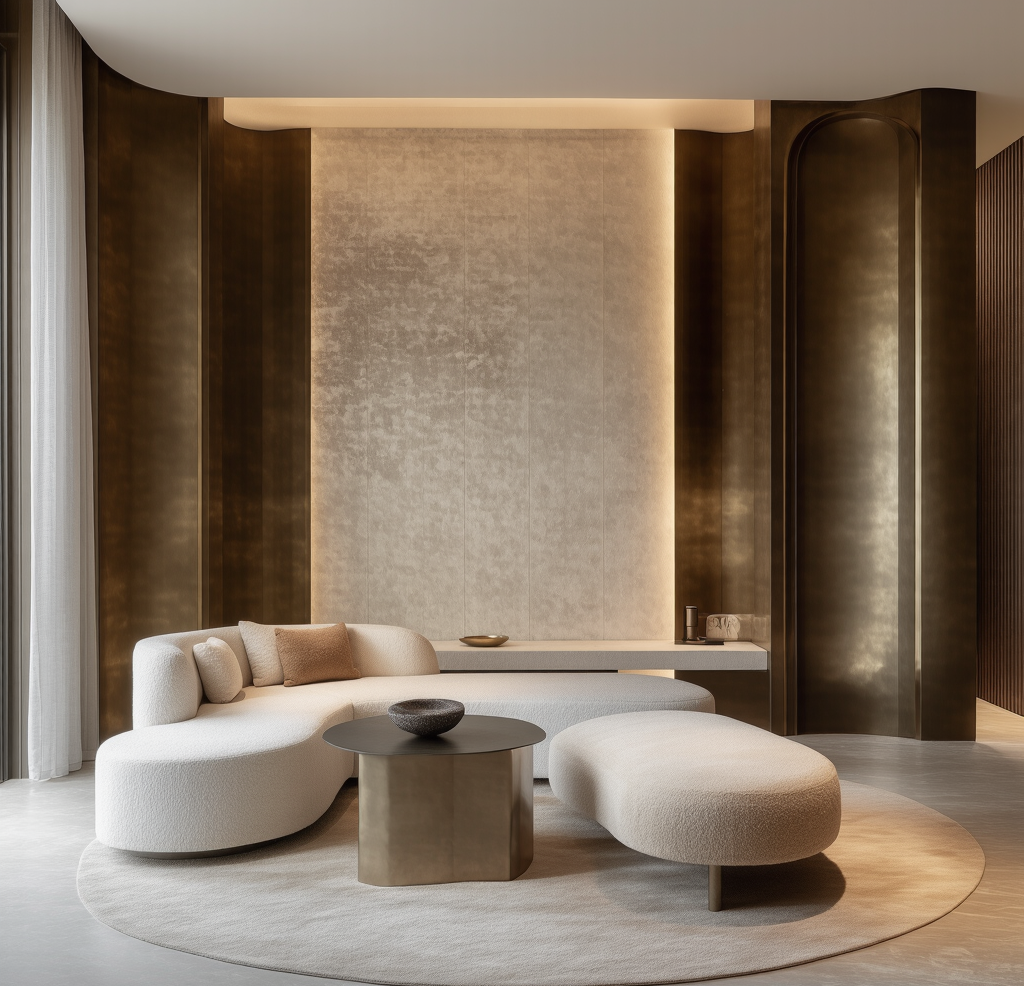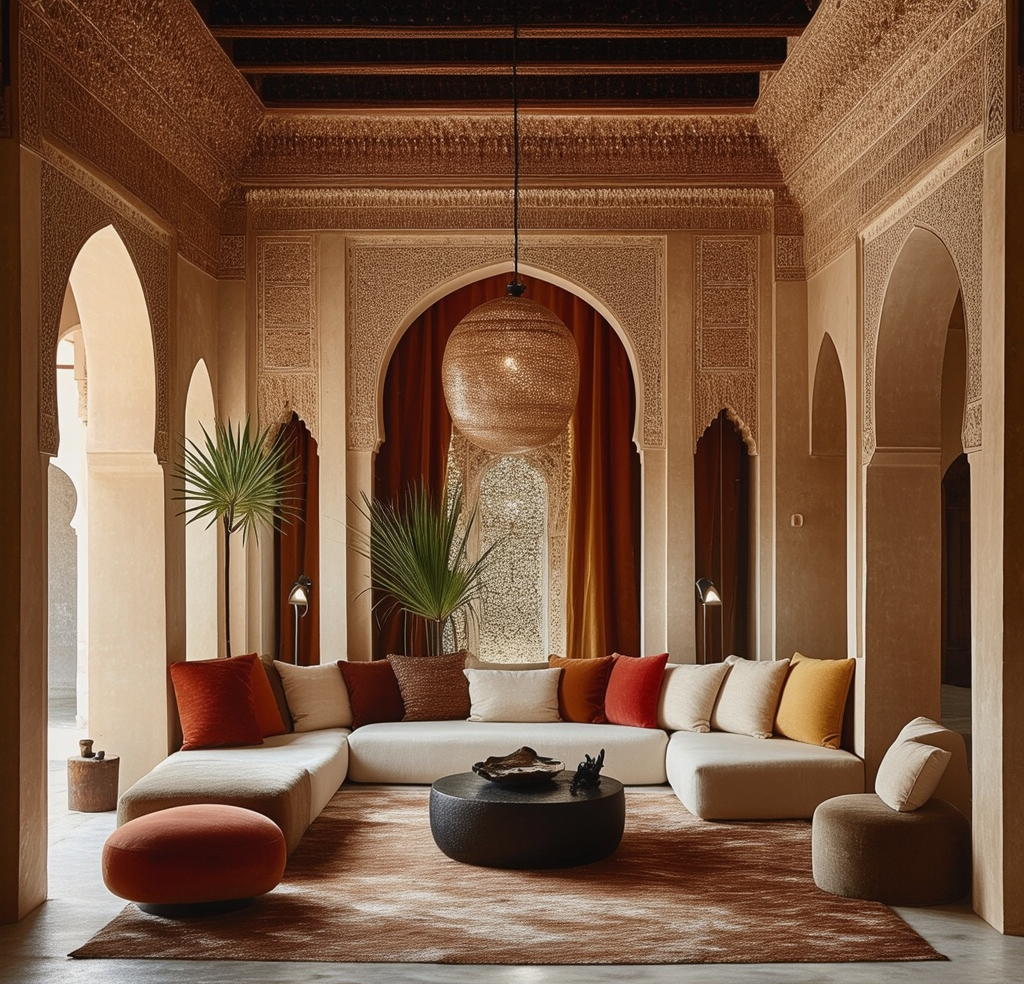The luxury hospitality industry is redefining its standards in 2025, with interior designers playing a key role in this transformation. Luxury is no longer solely about premium materials or exclusive services—today’s travelers seek immersive experiences, well-being, sustainability, and authenticity. For designers, understanding these shifts is essential to creating innovative spaces that meet the evolving demands of the market.
1. Design as the Cornerstone of the Guest Experience
Interior design has a direct impact on guests’ perception of luxury and their overall satisfaction. Hotels that invest in immersive and comfortable atmospheres not only foster guest loyalty but also build a strong visual identity. The harmony of lighting, colors, and materials creates an unparalleled sense of exclusivity and well-being, making every stay unique.
Design must be approached strategically, from the reception area to guest rooms and common spaces. Visually captivating environments that blend aesthetics and functionality are essential to attracting modern travelers who value engaging visuals and share their experiences on social media.
2. The Green Revolution: Sustainability as the New Luxury Standard
Sustainability has become a cornerstone of luxury hospitality. Recycled materials, renewable energy, and biophilic design are transforming the way spaces are conceived. The use of certified wood, organic textiles, and maximized natural lighting is not merely an aesthetic choice but a response to the growing environmental consciousness of guests.
Designers play a crucial role in this green revolution. By integrating natural elements such as vertical gardens and open-air spaces, they create a balance between sophistication and ecological responsibility. Additionally, initiatives such as modular and reusable furniture ensure versatility while minimizing environmental impact.
3. Technology and Sophistication: The Rise of Smart Hotels
Technology is elevating luxury hospitality to new heights. Smart rooms, where guests can personalize lighting, temperature, and curtains through voice commands or mobile apps, are no longer futuristic concepts—they are a reality in 2025.
For designers, the challenge lies in integrating technology without compromising aesthetics. Solutions such as interactive mirrors, furniture with wireless charging, and augmented reality for immersive experiences must be incorporated in a subtle and elegant manner, ensuring a seamless blend of innovation and refinement.

4. Sensory Minimalism: When Less Becomes More
Modern luxury is shifting away from excess and embracing sensory minimalism. Clean lines, spacious layouts, and soft color palettes create environments that promote serenity and exclusivity. Attention to detail—from the careful selection of fabrics to the strategic placement of lighting—defines this new approach to hospitality design.
Premium materials remain central, but they are applied in a more subtle and balanced way. Marble, brushed brass, and exotic woods appear in carefully curated details, enhancing the space without overwhelming it. This refined aesthetic conveys luxury in a sophisticated and timeless manner.

5. The Power of Storytelling: Designing Spaces That Tell a Story
Luxury travelers value authentic and culturally enriching experiences. Interior design can become a powerful storytelling tool, reflecting the identity and heritage of a destination.
Incorporating local architectural elements, exclusive handcrafted pieces, and historical references creates an engaging and memorable atmosphere. For designers, this means conducting in-depth research into the cultural roots of the location and collaborating with artisans and local artists to bring authenticity to the project.

Conclusion: Design as the Driving Force Behind Luxury Hospitality Evolution
In 2025, luxury hospitality is no longer just about comfort and sophistication—it is a fusion of sustainability, technology, and personalization. Interior designers are at the forefront of this transformation, shaping spaces that not only impress visually but also offer unforgettable sensory experiences.
Those who embrace these trends will be leading the future of hospitality, redefining luxury, and ensuring that every stay is truly unique and memorable.
Visit us at Nolita Harbour! Explore our collections and find exquisite pieces to elevate your living space.